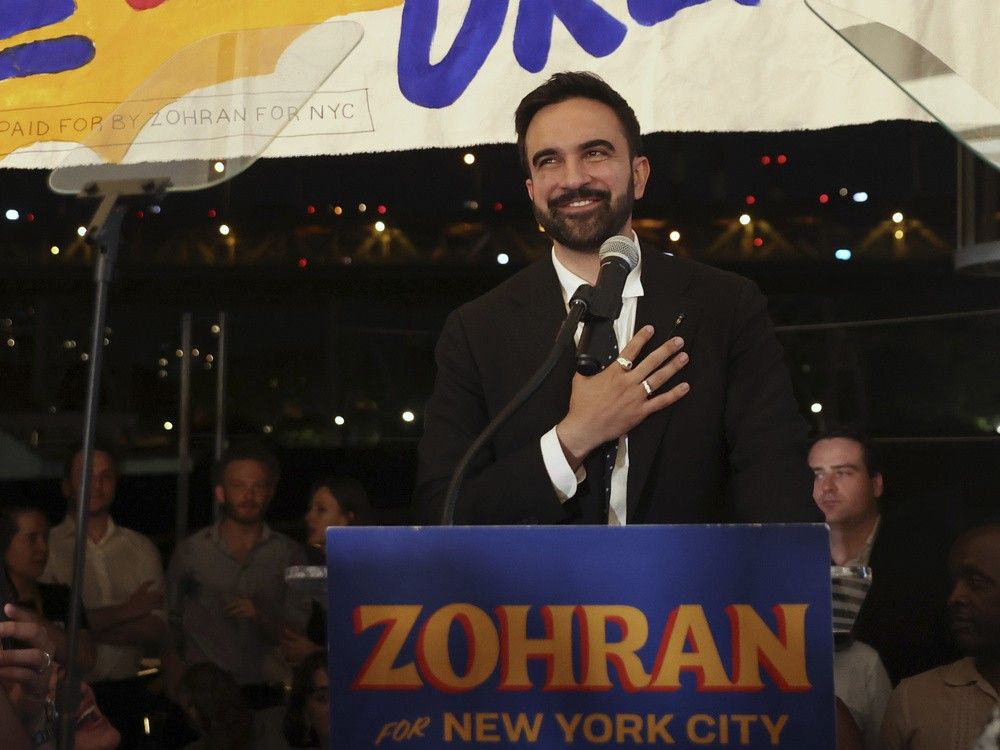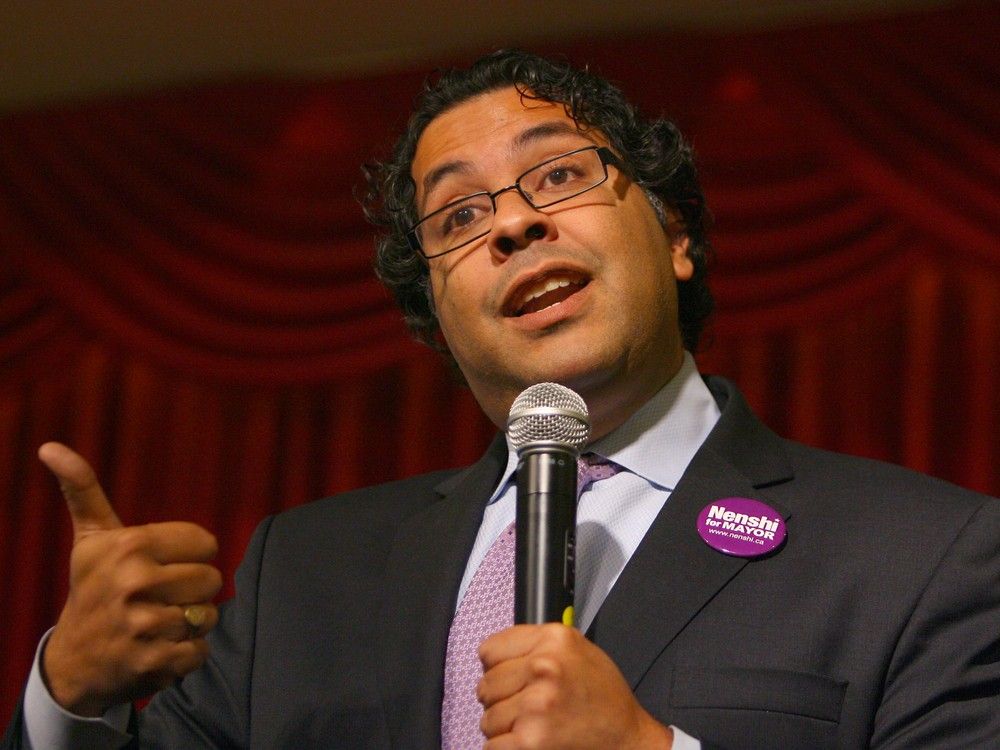
OTTAWA — Two architects of Alberta NDP Leader Naheed Nenshi’s surprise victory in the 2010 Calgary mayor’s race say they’re feeling déjà vu after seeing another thirty-something Shia Muslim — with family ties to East Africa and Gujarat, India — upend the politics of a major North American city.
Stephen Carter, now
, says he sees shades of his old boss in 33-year-old Zohran Mamdani, who rode an outsider campaign to victory in last week’s
New York City Democratic mayoral primary
.
“The similarities are hard to miss,” said Carter.
Carter said that, on top of the biographical similarities, Mamdani followed Nenshi’s playbook of using digital tools to build a strong personal brand that transcends party labels.
“I won’t pretend to be an expert on the inner workings of the Mamdani campaign but one thing I can say … is that the brand construction … was spectacularly implemented,” said Carter.
Fifteen years ago, Carter helped then 38-year-old Nenshi leverage newfangled social media platforms Facebook, YouTube and Twitter (now X) to launch a similarly powerful digital brand.
Nenshi’s then novel grassroots digital campaign helped him become the first Muslim mayor of a major North American city.
Carter says that the digital landscape has changed in the past 15 years but the fundamentals of building a political brand haven’t.
“Of all the things we talked about back in 2010, I think the strongest thing was actually the development of brand politics,” said Carter.
“Both parties and individual politicians have brands. And one thing we really thought hard about was where does the (candidate’s) brand lie?”
With Carter at the helm, the Nenshi campaign poured significant
. For instance, candidate Nenshi frequently donned the colour purple
— a mixture of Liberal red and Conservative blue — to put himself above partisan politics.
Nenshi has held onto
since making the jump to provincial politics last year, despite admitting on a recent podcast appearance that purple
doesn’t coordinate especially well
with the Alberta NDP’s traditional orange.

Carter said Mamdani first crossed his radar a few weeks ago, when his social media algorithms started to feed him short videos,
promoting the upstart mayoral candidate.
“When you’re starting to see (reels) from a New York municipal election in Calgary, it grabs your attention. I’ll tell you that,” said Carter.
And while today’s young adults have migrated from Facebook and X to newer platforms like the China-owned TikTok, Carter says that the big picture remains pretty much the same.
“This is another one of those moments in time where a campaign comes along and captures the zeitgeist in a bottle,” said Carter.
Mamdani, a self-described democratic socialist, ran on an unabashedly far-left platform, promising New Yorkers a rent freeze, free buses and child care, a $30 dollar minimum wage and
. He’s also aligned himself closely with
, a cause
in New York City and beyond last year.
This audacious platform, wrapped in a hip, telegenic package, propelled Mamdani past establishment rival Andrew Cuomo, formerly the governor of New York State.
Exit polling shows that
voted in the highest numbers in last week’s Democratic mayoral primary, after being one of the lowest voting demographics four years ago.
Mamdani will likely be the frontrunner in November’s general election, as the Democratic nominee in a city where Democrats dominate municipal politics.
Chima Nkemdirim, Nenshi’s longtime best friend and ex-chief of staff, stressed the ideological differences between Nenshi and Mamdani.
“The politics are a bit different. Actually, quite a bit different,” said Nkemdirim.
Nkemdirim noted that then university instructor Nenshi positioned himself as a forward-looking pragmatist to Calgarians, touting his business background and textbook knowledge of city planning.
Nenshi also differed stylistically from Mamdani, swapping out
for a more detailed “politics in full sentences.”
Nkemdirim nevertheless sees a few similarities in how each candidate rose from obscurity by keeping an ear to the ground.
“I think the biggest similarity is that you’ve got two politicians that are really listening to what people want and telling them that they can get it,” said Nkemdirim.
“When you go back to 2010, study after study indicated that people wanted … a city where it was easy to walk around, where things were affordable, where you could ditch your car if you wanted to … and no politician was running on that,” remembers Nkemdirim.
“And when Naheed (Nenshi) ran, he said, well why can’t we do all that stuff?”
Nkemdirim said that Nenshi’s revolutionary idea of figuring out what sort of city Calgarians wanted, and then telling them how to get there, helped him go from
60 days out to
on election night.
“I think that’s similar to what’s happening in New York. (Mamdani) is talking deeply about this issue of affordability … and saying, maybe we can do something about that.”
Nkemdirim admits that his friend Nenshi has yet to capture the same magic since entering provincial politics but says that listening is a skill that applies equally well in his new arena.
He notes that Premier Danielle Smith’s recent convening of
, a panel focused on narrowly appealing topics like
and creation of a provincial police force, gives Nenshi an opening to set up a genuine listening post.
“I think you’ll see that from Naheed over the summer. People want to talk about the issues that actually matter, as opposed to the manufactured ones the UCP is putting forward to them,” said Nkemdirim.
Nenshi won
last week’s Edmonton Strathcona byelection
in a landslide but still
.
He declined a request to be interviewed for this article.
National Post
Our website is the place for the latest breaking news, exclusive scoops, longreads and provocative commentary. Please bookmark nationalpost.com and sign up for our daily newsletter, Posted, here.
